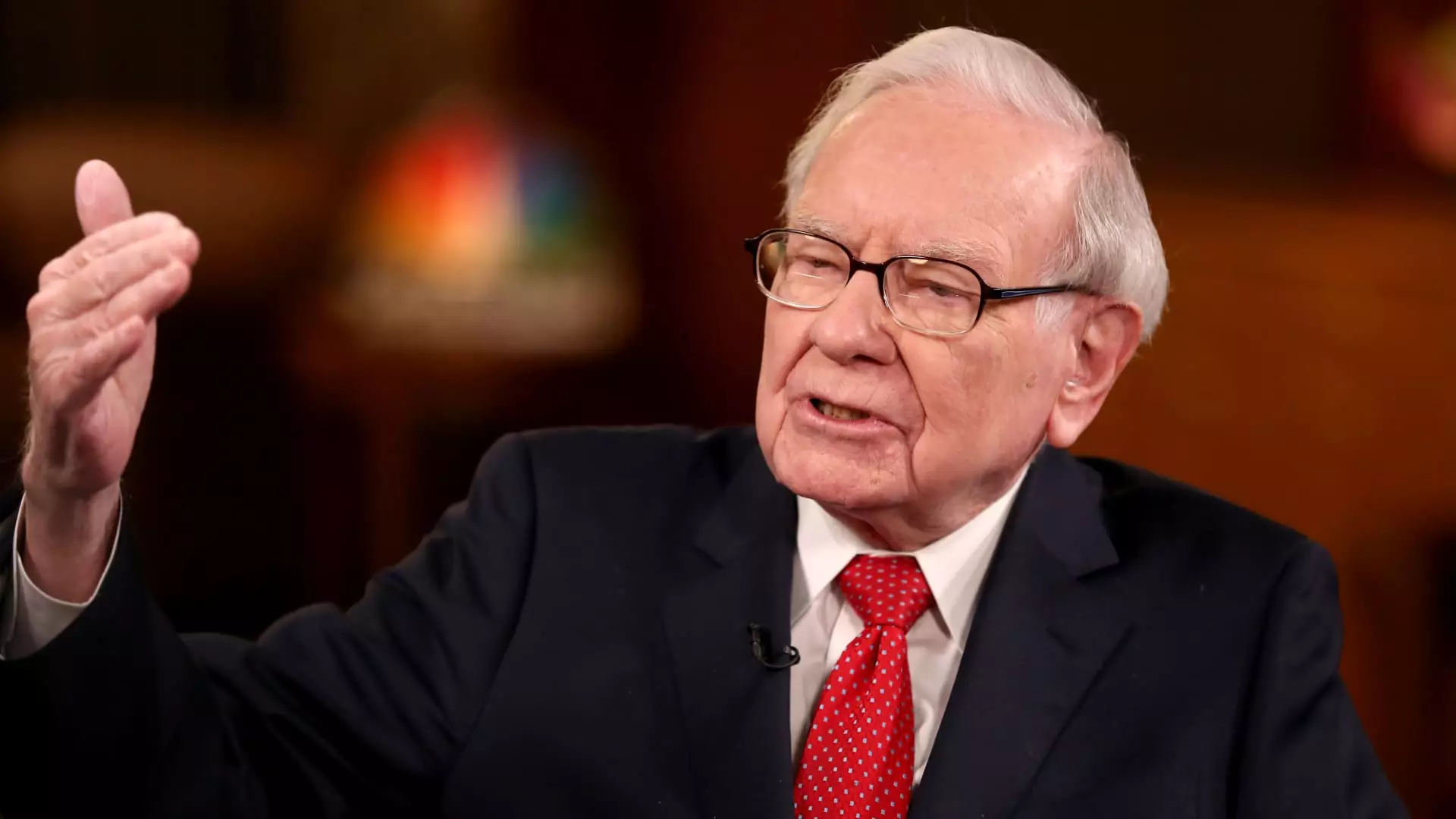In an era dominated by social media, misinformation can gain traction quicker than one can imagine. Recently, Warren Buffett found himself embroiled in controversy when a fan-made video shared by Donald Trump on Truth Social claimed the renowned investor endorsed the idea that Trump was intentionally tanking the stock market to benefit the economy in the long term. This claim sent ripples through the financial community and captured the attention of mainstream media, raising questions about the intersection of politics and economics in a hyper-connected world.
The video contended that Trump’s recent economic decisions were a cunning strategy, with a narrative suggesting that Buffett had endorsed these moves as some of the most significant in the past half-century. The absurdity of such claims underscores the dangers of false narratives proliferating on platforms designed for rapid content sharing. When it comes to someone like Buffett, whose reputation has been historically built on sound investment principles and economic acumen, it raises the question of why such misinformation persists.
Buffett’s Swift Denial
Following the uproar fueled by Trump’s social media post, Buffett’s company, Berkshire Hathaway, promptly issued a statement denying any affiliation with the video’s claims. This was not merely a protective measure for his brand, but a necessary act to maintain the integrity of economic discourse. Buffett, at 94 years old, emphasized his dedication to dispelling falsehoods in a landscape rife with speculative noise. Refusing to comment on current market conditions before Berkshire’s annual meeting emphasized his preference for thoughtful analysis over impulsive rhetoric.
Buffett’s decision to distance himself from the controversy highlights his belief in responsible communication, especially in an age where fortunes are made or lost based on information—correct or erroneous—shared online. Not only did he refute the specific claims made in the video, but he also acknowledged the broader issue of misinformation that endangers public understanding of economics.
The Economic Consequences of Misinformation
The stakes of misinformation are especially high in the financial sector. When misleading claims circulate, they can induce panic selling, affect stock prices, and undermine investor confidence. The economic landscape is already vulnerable to volatility; thus, the addition of false narratives can have cascading effects. Buffett’s historical stance against tariffs—considered by him as “an act of war”—demonstrates his concern for economic stability. He understands that trade conflicts and misguided economic policies can lead to dire consequences not just for the United States but globally.
Trump’s tweet and the subsequent promotion of the video highlight the intersection of economic policy and populist rhetoric. By alleging that he was intentionally sabotaging the stock market, Trump aimed to frame his economic strategy as a calculated risk amid broader political goals. However, this narrative risks detaching itself from economic reality, which is where seasoned investors like Buffett step in to clarify the situation.
A Defensive Stance in Uncertain Times
Buffett’s recent activities indicate a cautious approach amidst a turbulent market backdrop. By rapidly divesting stocks and amassing significant cash reserves, he appears to be preparing for potential uncertainties ahead. His business empire, which encompasses substantial interests in various industries including insurance and manufacturing, relies on a stable economic climate. Publicly traded companies are at the mercy of investor sentiment, which can easily swing based on tweets or viral videos.
As someone who has consistently warned against the perils of trade wars and economic isolationism, Buffett’s current strategy emphasizes preparedness. In a world where financial markets are highly interconnected, maintaining liquidity can be a strategic advantage. By holding over $300 billion in cash, Buffett is not merely safeguarding his conglomerate; he is positioning Berkshire Hathaway to capitalize on future opportunities during downturns.
Buffett’s Legacy and Responsibility
Ultimately, Buffett’s reaction to the misinformation campaign reinforces the value of authenticity and accountability in economic leadership. He has a responsibility not only to his shareholders but also to the broader public that looks up to his insights on economic matters. In rejecting the claims made about him and expressing a desire for clarity, Buffett showcases how crucial it is for influential figures to ground their communications in factual integrity.
In a society where various stakeholders often spin narratives for personal gain, Buffett’s principled stance serves as a reminder that financial wisdom is built on truth, data, and ethics rather than sensationalism. As misinformation continues to plague social media channels, Buffett’s commitment to dispelling falsehoods may encourage others in positions of power to adopt a similar ethos. The integrity of economic discourse hinges on the willingness of thought leaders to step forward, clarify the truths, and challenge the narratives that threaten to misinform and mislead the public.

